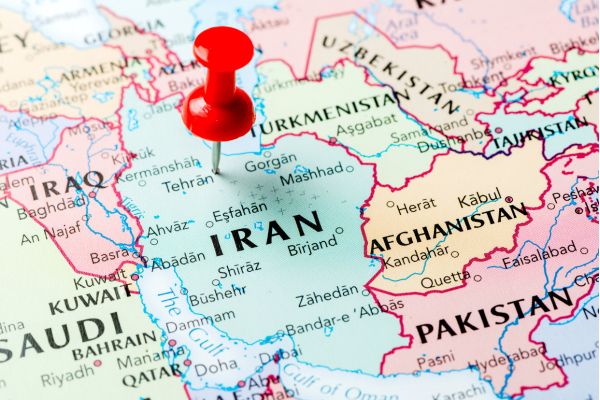BY:
SHARE:

The new government department, OTSI, the Office of Trade Sanctions Implementation, were launched this month. OTSI’s role is to strengthen the United Kingdom’s implementation and enforcement of trade sanctions. Like the ECJU, the Export Control Join Unit and OTSI are part of the Department for Business and Trade. Part of OTSI’s priorities is to raise awareness of trade sanctions.
OTSI and the FCDO, Foreign Commonwealth and Development Office, updated the Iran Sanctions: Guidance on 10 October 2024. The guidance should be read alongside the Iran (Sanctions) (Amendment) Regulations 2024.
The guidance has been provided to assist in the implementation of and compliance with the Iran (Sanctions) Regulations 2023 (the ‘Regulations’) as amended from time to time
The update confirms that it provides guidance on prohibitions and requirements which are imposed by the regulations and best practices for compliance, together with the circumstances where the sanctions do not apply.
The updated guidance should be read in conjunction with the information provided by other government departments.
Department for Business and Trade
OFSI, Office of Financial Sanctions Implementation
The update confirms that the regulations impose financial, trade, shipping, director disqualification and immigration sanctions. If any clarification is required, especially with respect to actions that could contravene the regulations, the advice is to obtain independent legal advice.
Focusing on the trade sanctions, there are trade prohibitions on three types of goods and technology, which are detailed in the Iran (Sanctions) Regulations 2023. Firstly, those which might be used for internal repression are listed in Schedule 2. Secondly, goods and technology which might be used for the monitoring and interception of telecommunications are listed in Schedule 3. Finally, the provision of interception and monitoring services (as defined in Regulation 26) to or for the benefit of the Government of Iran goods and technology of strategic concern, including those in Iran’s Unmanned Ariel Vehicle and missile programmes (as specified in Schedule 4 to the Regulations).
The update emphasises the requirements of Customs and Trade Compliance. Checking the Commodity Code of the goods on the UK Integrated Online Tariff to ascertain if the product is sanctioned is imperative as a first step. It is important to establish the Ultimate End Use of the Goods. The exporter’s responsibility may be to ship the goods to their consignee. The prohibitions could still apply if the recipient is not based in Iran. Conducting Due Diligence to establish the end user and end use is vital. Export Control compliance goes beyond establishing who the consignee is.
Technology and Technical Assistance may mean an intangible transfer of information. The prohibitions cover technical support relating to the repair, development, production assembly testing, use or maintenance of the goods or technology or any other technical service relating to goods or technology. These prohibitions mean that even if the person to whom you are providing the relevant technical assistance is not in or “connected with Iran”, the prohibition may still apply if the goods or technology to which the technical assistance relates are for use in Iran.
If applicable, a licence for Goods, Technology or Technical Assistance would need to be obtained from the Export Control Joint Unit for activities that would otherwise be prohibited. The export licence will likely be a SIEL, Standard Individual Export Licence, applied via LITE, Licensing for International Trade and Enterprise. Section 3.6 of the update highlights the “Overlap with Strategic Export Licensing”, specifically in relation to Military and Dual Use controls.
A Trade Services Licence would be obtained from OTSI. Licences cannot be applied retrospectively, and it shouldn’t be assumed that a licence will be granted.
A summary of the other sanctions is as follows:
- Export of Goods / Supply and Delivery of Goods
- Making Goods and Technology Available
- Financial Services and Funds related to Goods and Technology
- Brokering Services
- Other Service Provisions
- Shipping Sanctions
- Immigration Sanctions
Section 2 of the guidance provides information on how non-compliance with sanctions will be enforced by OFSI, OTSI or HMRC, who have the responsibility for the enforcement of trade sanctions that fall within its remit as the UK’s customs authority and for the enforcement of trade sanctions measures that relate to strategic goods and technology.
To remain up to date with the new department’s communications. It is recommended that you subscribe to OTSI news, which can be accessed via the “Get Emails” link on their homepage.
If you are interested in exploring this topic further, you might find it worthwhile to consider the training courses and live clinics offered by Strong & Herd LLP:
OneCall™ Email assistance as and when required; A one-call solution for all your import, export and customs enquiries. Export help. Import help. Customs help.
Stay informed about customs and international trade matters by subscribing to our OneCall™ service. This comprehensive offering includes a dedicated email helpline for support, timely practical updates direct to your inbox (Did You Know?), monthly UK Customs & Trade Briefings and access to an interactive members' area with an exclusive community for our subscribers.
International Trade Updates & Spotlight Newsletter
Subscribe to our free information emails covering international trade topics...
MORE INDUSTRY INSIGHTS...












